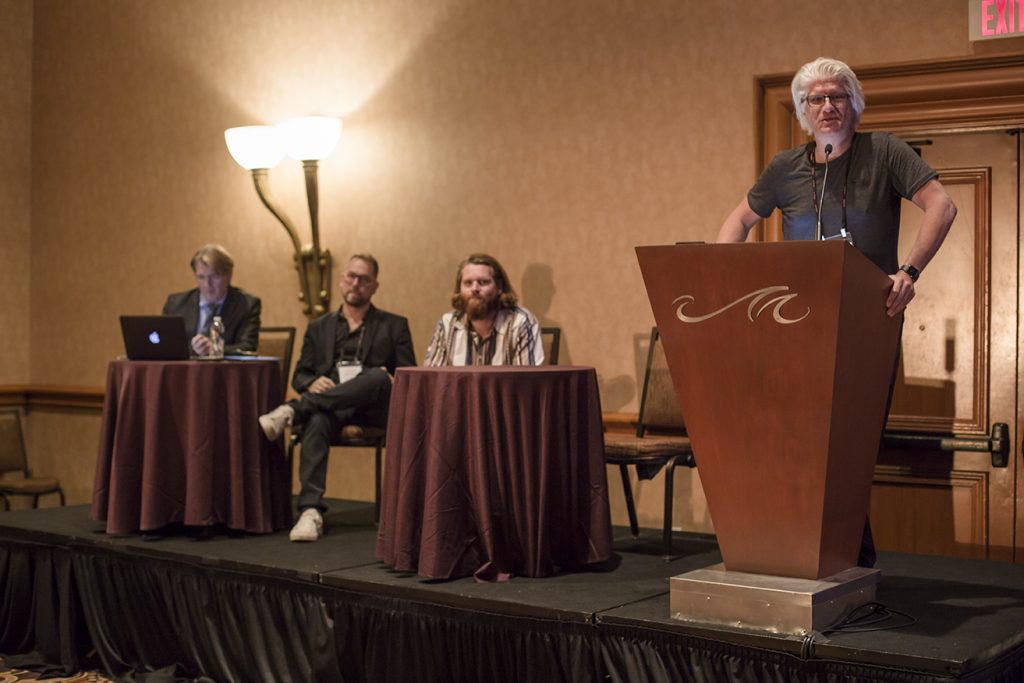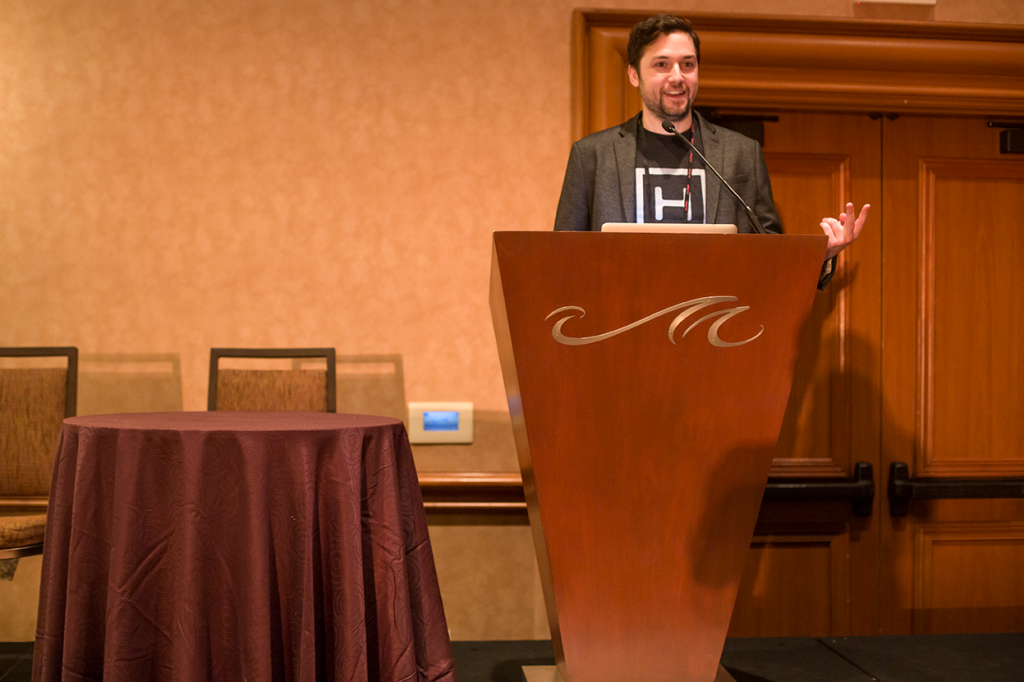
About 40 attendees filled a small conference room at the Mandalay Bay in Las Vegas this morning for the beginning of the second annual Future of Immersive Leisure conference (FOIL). With a laser focus on the future of entertainment, show organizer Kevin Williams kicked off the event with a quick rundown of what the show’s goals are, highlighting the expansive field of products, strategies and technologies that are reshaping the way people around the world enjoy themselves outside their homes.
“VR is just one of the many components we see driving immersive entertainment,” Williams said. “Gamification throughout the entertainment sector is immense right now.”
The conference began in earnest with Michael Bridgman, an entrepreneur who heads MajorMega, a VR content and experience creator. Bridgman shared the company’s latest product, the Hyperdeck, a turn-key VR attraction that includes a motion platform, immersive wind and vibration effects and a revolutionary pedestal controller with dynamic resistance and recoil effects.
Hyperdeck is being manufactured right now, and includes innovative spectator involvement as well, allowing watchers to interact with players through an app on their phones. “Developers spend so much time making things for a screen, but people are looking for something they can touch,” Bridgman said.
Following Bridgman, Williams and longtime tech writer Charles Fink sat down for a fireside chat covering how the industry is taking shape and where it is headed. Fink was closely involved in past attempts at VR and said that today’s pioneers can learn a lot from previous mistakes. According to Fink, food and beverage alongside VR is a recipe for business ruin, but utilizing mobile technology as a platform for augmented reality (AR) is where a lot of money is going.
“Tech succeeds when it takes something we’re already doing and makes it better,” Fink said. “Getting people to do something they’re not already doing is a Sisyphean task.”

Fink drove home the point that home/consumer VR is tanking, and that’s causing the industry to look toward LBE as its savior. He asserts that this means there’s a lot of money up for grabs, and a lot of potential for leaders to emerge. He compared it to the origins of film, back in the early 1900s when the world was fascinated with this new entertainment, but content creators had no clue what they were doing. Names like Méliès and Griffith are eternally remembered because they paved the way with unique and groundbreaking ideas, and similar potential exists for the VR, AR and mixed reality pioneers of today, Fink said.
Next was a group discussion moderated by Sami Ramly (Outpost Capital) including Kalon Gutierrez (Nomadic), Brad Scoggin (Springboard VR), Baba Uppal (Secret Location) and Kevin Vitale (VRstudios). The stacked group tackled the topic of building a new infrastructure for the emerging VR LBE biz, covering everything from content to IP to who’s actually making money and how.
The group highlighted several problems the industry is facing, including that the term “VR” itself covers a wide variety of products, from vomit-inducing smart-phones stuck in goggles to multi-million dollar immersive installations. Also, as of now, the industry has no standard pricing model, meaning that every new location is simply guessing on how to price their attraction, making it hard to create a consistent market that encourages repeat play. However, the group left attendees with a positive outlook as entrepreneurs and content creators are getting more realistic with their ambitions.
“We’re seeing a huge shift in the industry from people making business decisions based on emotion, based on just being in love with the tech, to decisions based on emerging sets of data,” said Brad Scoggin.
Next was a panel moderated by VR pro Bob Cooney, featuring Shawn Barret (Landmark Entertainment Group), Rob McCarty (The Gateway VR Showroom) and Michael Zaidan (Minority Media). The group dove into the alternative content that is driving revenue for LBE VR owners, a topic that ranged from VR used in meditation to a brand-new concept called the Cybrary.
This $30-million project from Landmark Entertainment Group coming to Homestead, Fla., is a new concept that seeks to revitalize libraries and transform learning into a completely engaging and immersive experience. Imagine instead of reading about the Magic School Bus or watching it on TV, kids can climb into a school bus augmented with reality-altering tech that takes them on a journey through space or through the human body.
The group also talked about leveraging corporate team building within VR, with McCarty sharing that his company was building experiences that target and improve specific traits such as communication or delegation. Other topics included leveraging the growing popularity of the horror genre (which experienced its most lucrative year ever in Hollywood last year) as a VR attraction and more.
At the time of this publication, a full day and a half of content was still to come. Look for another update this Friday, as well as a full report in July’s RePlay.
